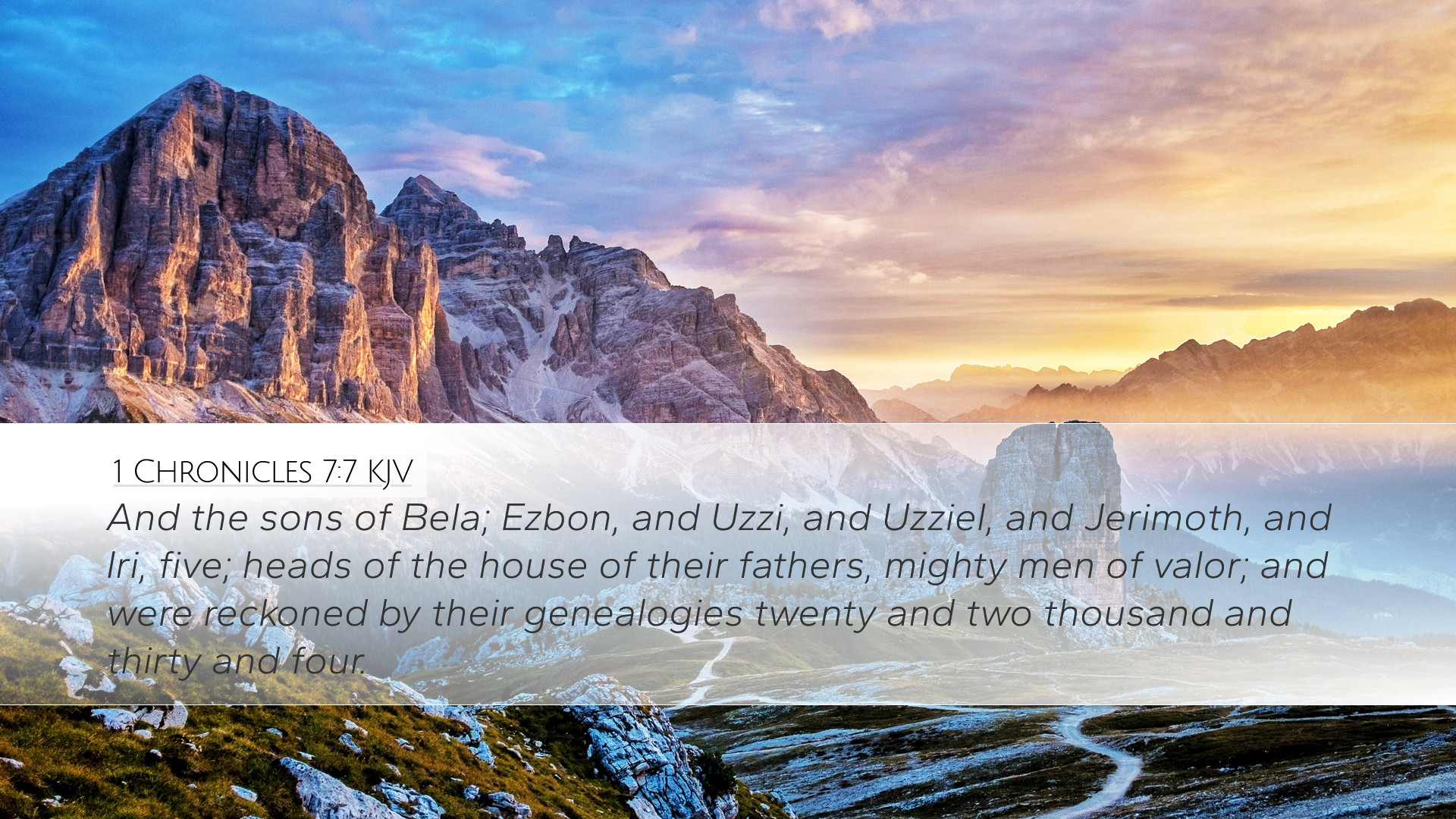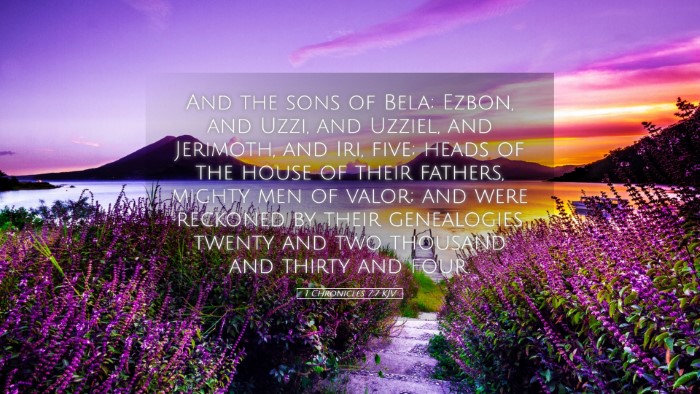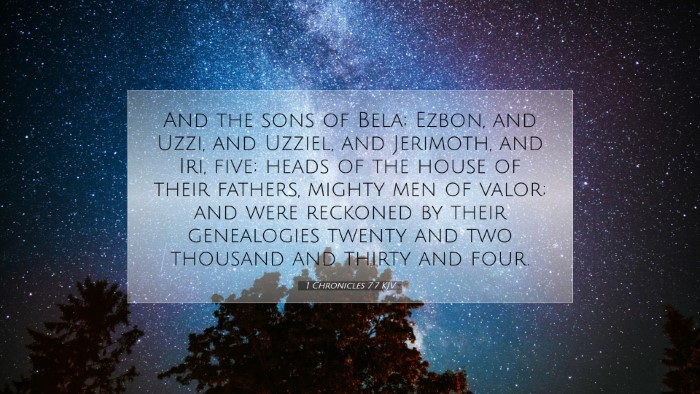Commentary on 1 Chronicles 7:7
Verse Overview:
1 Chronicles 7:7 records the names and lineage of the sons of Issachar. This genealogy is essential for understanding the tribal divisions and the historical context of Israel.
The verse reads,
"And the sons of Bela; Ezbon, and Uzzi, and Uzziel, and Jerimoth, and Iri, five; heads of the house of their fathers, mighty men of valor; and were reckoned by their genealogies twenty-two thousand and thirty-four."
Historical Context
The First Book of Chronicles primarily serves to trace the genealogy and history of the Israelites, stressing the importance of lineage. This genealogical data was crucial for the restoration of Israel after the Babylonian exile. The emphasis on family names reflects both honor and responsibility attached to heritage within Israelite society.
Commentary Insights
Matthew Henry's Perspective
Authority and Valor: Matthew Henry emphasizes the significance of the "mighty men of valor." He interprets this as a reflection of the strength and military capability of the tribe of Issachar, illustrating their readiness to serve in battles. Such individuals were not merely warriors but represented leadership and prowess in the lineage of Israel.
Divine Providence: Henry asserts that genealogies serve to show God's providential care over His people. Each listed name illustrates God's faithfulness in preserving a remnant that ultimately leads to the faithful legacy and eventual coming of Christ.
Albert Barnes' Analysis
Numerical Significance: Barnes notes a particular interest in the number given—twenty-two thousand and thirty-four—pointing out that such figures often represent more than mere statistics. He posits that these numbers can signify completeness and the fullness of God's blessings upon the tribe. The strength of Issachar can be viewed as part of God's overarching narrative for Israel.
Function in Society: Barnes also elaborates on Issachar's role within Israel. He draws parallels to the tribe's expertise in understanding the times (1 Chronicles 12:32), which underscores their capacity to provide wise counsel to Israel. The genealogical records strengthen their reputation and authority during critical moments in Israel's history, particularly during battles and moments of national decision-making.
Adam Clarke's Reflections
Tribal Characteristics: Clarke offers insights into the character of each son mentioned. For instance, he highlights how the names of the sons might reflect traits valuable for leadership and guidance among the Israelites. Understanding them provides clues to shaping community identity and securing peace and stability.
Importance of Genealogy: Clarke places significance on genealogical records as a testament to the faithfulness of God to His promises. He suggests that these records help to document the fulfillment of God's covenant with Abraham, which extends through his descendants and ensures the continuity of faith and identity.
Theological Implications
The emphasis on genealogy in 1 Chronicles 7:7 raises important questions about identity and belonging in faith communities today. For pastors and theologians, this verse challenges them to consider how history and heritage shape modern faith practices.
-
Community Legacy: The communal aspect of the genealogies reminds current generation believers of their connection to the larger body of Christ, rooted in historical faithfulness.
-
Spiritual Heritage: Understanding one's spiritual lineage can deepen the awareness of God's working through generations. This encourages today's believers to remain mindful of their roles in contributing to the legacy of faith.
Practical Applications
The richness of 1 Chronicles 7:7 offers various applications for ministry and personal faith.
-
Teaching History: Pastors should integrate biblical histories, such as genealogies, into their teachings. It reinforces the continuity of God's work through different ages.
-
Encouraging Valor: Like the mighty men of valor, today's believers are called to act with courage and commitment in their faith journeys, reflecting the valor seen in the ancestral records.
-
Promoting Unity: The understanding of common heritage can promote unity among diverse church members, fostering a belief in shared purpose and identity in Christ.
Conclusion
Therefore, 1 Chronicles 7:7 serves as a vital reminder of the importance of lineage, community, and individual responsibility within the broader narrative of redemption. Through the insights provided by noted scholars, we see the richness of this text, urging believers to weave their stories into the ongoing tapestry of God’s work.


